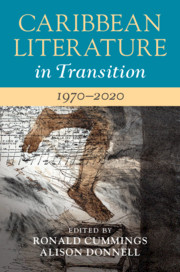
- Cited by 2
-
Cited byCrossref Citations
This Book has been cited by the following publications. This list is generated based on data provided by Crossref.
Forbes-Erickson, D. Amy-Rose 2025. The Imperative of “Human Happiness”. Angles, Vol. 19, Issue. ,
Regis, Hannah 2025. “Conjoined Destinies”: The Poetics and Politics of Black Migrations in Jason Allen-Paisant’s Self-Portrait as Othello. Humanities, Vol. 14, Issue. 3, p. 43.
- Publisher:
- Cambridge University Press
- Online publication date:
- December 2020
- Print publication year:
- 2021
- Online ISBN:
- 9781108564274


